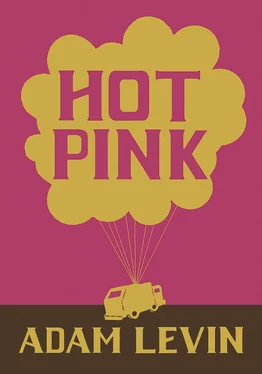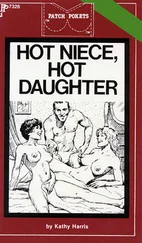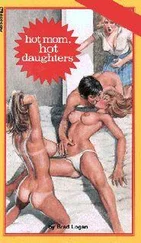Jake said, “It’s not a feeling. It’s a thought. You can’t feel like you shouldn’t have said something. You can think you shouldn’t have said something, though, and then feel sad or mad or glad, or any of the other ones there.” He pointed at a new poster depicting forty cartoon faces, each a circle, each expressing a distinct emotion, with a label beneath it, like

“Exactly,” the therapist said. “And I want to expand on that: it is truly positive to unpack the sorts of thoughts and feelings that Sally just unpacked. If we don’t unpack the thoughts, we soon forget we have them, and all we notice are the feelings, and the feelings make our negative attitudes stronger, only we can’t challenge them and make ourselves better people, because we can’t point at them and say, ‘Maybe I’m wrong. Maybe I shouldn’t have felt sad.’ Because we can’t argue rationally with feelings. Because feelings aren’t subject to rationality. Feelings come after thoughts, which are subject to rationality. And the good news, of course, is that we can argue rationally with our thoughts. We can say to ourselves: ‘Maybe I’m wrong. Maybe I didn’t cross a line. Maybe Ben was having a bad day when I told him that I liked his haircut. Maybe it even made his day better that I told him I liked his haircut, but he was unable to express. I should explore this further. I will explore this further. There are so many possibilities.’ And by doing that, we can argue ourselves out of feeling sad. We can make our negative attitudes that much weaker! And that’s good news.” He nodded his head.
Everybody agreed it was good news. They nodded their heads.
The other Rick I met was a sales clerk at Pep Boys, where we’d gone to buy whatever part it was Tell thought she needed to replace to get her truck running. He wore his glasses on a chain around his neck. I was in the seat-cover aisle when I saw her follow him to the garage at the other end of the store. I ran after them and, as I came through the swinging doors, I saw him palm-strike her chest. Tell crumpled into the wall behind her and slid to the floor. The guy turned and saw me. He was shrugging.
I swung on him so hard. When I missed, I fell.
He said, “It’s alright, buddy. Just take it easy.”
He walked back into the shop proper, rubbing the lenses of his glasses with a handkerchief. Tell brought me to the employee bathroom and lifted her skirt in the grease-smudged sink.
“I hate this,” I said in her ear.
She said, “It doesn’t feel like you hate it.”
Still, after that, Tell quit getting Ricked in front of me.
The school year ended and I got a job washing windows and cleaning gutters on the North Shore with a small crew run by the son of a friend of my father’s. They were good guys. They didn’t try to make me talk a lot. The job paid twenty-five an hour and it tired me out. If it wasn’t raining, they’d pick me up at six in the morning in an old Jetta with a ladder bungeed to the roof and drop me back at home around four. I started eating three full meals a day and I came to appreciate sleep. Tell mourned the scrapes and then the calluses on my hands.
In the week or so after the Pep Boys Ricking, I’d panicked in my car another three or four times. I didn’t “sense” leaning needles, think I had a tumor, or imagine I’d explode, though. Rather, I’d fear I’d have a panic attack, and my fear of an attack would itself trigger one. I determined pretty quickly that I had become motorphobic, and I knew that the origins of my motorphobia — the automotive-related occupations of the Ricks I’d met and the close proximity of cars to the Rickings I’d witnessed — were nothing more than what Skinner would call “accidental contingencies” of my behavioral shaping. I knew, without a doubt, that cars were not connected in any relevant, causative way to Tell’s getting Ricked or my post-Ricking sex with her, and I told myself so whenever I got near a car, but it didn’t really help. The panic’s irrationality was a fact the way that death is a fact: the more able I was to accept it, the more convinced I became that it wouldn’t go away, and, soon enough, as any behaviorist could have predicted, the act of noting the irrationality became, itself, a trigger of the panic.
One morning I would walk toward my boss’s Jetta, and five steps away I’d start thinking, “There’s nothing to fear, go make your money,” and the next morning I’d have to start from six steps away, and seven the morning after that. Overall, though, the Jetta was manageable; the panic was low-grade. Riding in the back of it wasn’t any worse than sitting shotgun in my car had been on the night we’d gone for ice cream. Once we started rolling, I’d get a little dizzy and have to crack the window and think about fucking to distract myself from the sickness in my chest, but I wouldn’t throw up or pass out or anything.
My own car, however, was much, much worse, and the panic it incited was anything but low-grade, especially when I rode with Tell — the attacks were at least as intense as the first one, and their increasing frequency lowered my tolerance. I panicked in the backseat, thinking about sitting shotgun where the last time I’d panicked while thinking about driving, and I fled the car in under a minute. Then I panicked outside the open car-door, thinking about sitting in the backseat where the last time I’d panicked while thinking about sitting shotgun, and I fled the car in under thirty seconds.
Within two weeks of the Ricking at Pep Boys, I’d quit the thing entirely.
Tell couldn’t fix her truck herself, and even though I was making more money than I had when I was selling pot — more than enough to buy scores of new books I was too tired to read and a cell phone when there was no one I wanted to call — I didn’t offer her any money to pay for a mechanic. I wanted to help her out, but the thought of a mechanic got my heart banging and I’d hyperventilate.
She took a minimum-wage job at an art-supply store a couple miles from the apartment. She’d drive my car there on mornings she was running late. Otherwise she’d walk to work and I’d walk to meet her halfway at the tracks or the park at half past seven in the evening.
Sometimes I’d notice she had a new bruise or cut. Sometimes I couldn’t tell if it was new or reopened. The first few times, she’d say who’d done it to her: a bank teller, a sculptor, a plumber, a guy who contracted faux-finishing crews out to restaurants and hotels. I’d ask her to stop telling me about it. Then one evening by the tracks she showed up with a new gash on her shoulder she didn’t speak of and I asked her who did it.
“I thought you didn’t want to know,” she said.
I said, “I want to know it’s not happening.”
“You want me to lie to you.”
“I want you to stop,” I said.
She said, “I’m there when you come. I see you.”
“That’s what you always say, but I still feel guilty, Tell. I can’t help it.”
She looked around for something to hurt herself with, and when she couldn’t find anything, she let her legs go out beneath her and landed on the rail, hard, on her tailbone.
I didn’t move. I said, “I’m gonna leave you if you don’t stop.”
“You won’t,” she said.
She was right. “Then I won’t fuck you anymore,” I said.
“Sure,” she said.
It wasn’t all bad. In the evenings, before bed, I’d come out of the shower and she’d sit behind me on the couch, wrap her legs around my waist, rub cold hand lotion into the skin of my knuckles. On Thursdays we had the day off together. Tell would paint small pictures in the living room on the canvas snippets she took home for free from the art store, and I’d smoke at my desk, examining the spines and covers of the books I’d bought. Sometimes I’d re-read bits of Skinner. When the sunlight faded, we’d go for a walk to the tracks or the park. If there was rain forecast for Friday morning, my boss would cancel work, and Tell and I would walk to Denny’s after midnight.
Читать дальше












